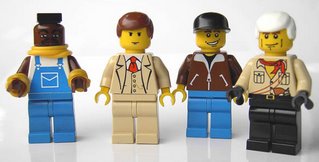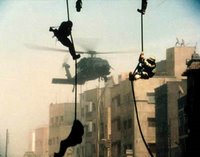 Yesterday at 5:32 pm: Using leaves to mark sidewalk poop. Saving lives.
Yesterday at 5:32 pm: Using leaves to mark sidewalk poop. Saving lives.We all suffer from crisis time to time but the traditional model is for the person in trouble to reach out to others. That's insane isn't it? When is it our responsibility to identify when we're in crisis? People in general are good at convincing themselves that things are perfectly fine; who has the time or the inclination to shine the spotlight of insight internally?
Isn't it much better if our friends were armed with the intestinal fortitude (and permission) to just jump in there and spark an intervention? With any group of friends, there's always people in need of intervention. Some of them are small in nature but once in awhile they are life changing issues.
For example: A few years ago we staged an intervention for a friend who was consistently endangering his life by driving too fast and crashing into things. It had little to no effect but at least we tried. We also staged an intervention once for someone because we felt their chronic relationshipping was akin to alcoholism. That actually should be a disease. "My name is Brenda and I'm a relationship-aholic... Actually, screw this twelve step shit. Who's single?"
An example of a mini-intervention (all names and details have been changed to protect the innocent):
Open scene: Two guys are hanging out at a club
Larry: Hey Seth, would you want someone to tell you if you had shit on your face?
Seth: What?! Sure, I guess.
Larry: Even if it's kind of mean?
Seth: We're good friends, go for it.
Larry: You've got a dandruff problem dog.
*awkward silence*
Seth: Thanks man.
Larry: No problem. Here's a travel size Head and Shoulders.
 See how great -- not to mention useful -- interventions can be? All it takes is honesty and communication. Better friendships are formed because of it. What's the point of having good friends if they won't do the things that normal friends don't do? The point of having awesome friends is to cross boundaries. I've been the target of a few interventions in my time (usually impromptu) but I feel like they would be more effective if we did one thing: We need to select our "In Case of Emergency, Break Glass" people beforehand.
See how great -- not to mention useful -- interventions can be? All it takes is honesty and communication. Better friendships are formed because of it. What's the point of having good friends if they won't do the things that normal friends don't do? The point of having awesome friends is to cross boundaries. I've been the target of a few interventions in my time (usually impromptu) but I feel like they would be more effective if we did one thing: We need to select our "In Case of Emergency, Break Glass" people beforehand.It's no use to assemble a team of interveners when the crisis is already at hand. The point is to get the team deployed and on the ground as soon as possible. There's no time to be sitting around making a list of "Who should we invite (to intervene)?" when all shit's gone to hell.
The basic rule of creating an intervention team is simple:Look for efficiency. Bring in only who needs to be there -- the absolute minimum -- and make sure everyone else just supports them. If they ask for a battle axe, a kitten, two lemons, and a 36-inch flat screen television, don't ask questions. Just go get it. The intervention team makes all the calls. Everyone else just follows orders. After all, the intervention team has been hand-selected for just this reason; they understand the person under crisis best.
During my most recent crisis, I felt like my intervention team was hastily assembled. I mean, it's fine because it was kind of sudden and everyone was under a bit of duress but many bad things could have been avoided if I had just specified (and opened up) about who my intervention team should be. Without such a clear cut chain of command, it was throwing shit against the wall to see what stuck. Next time around, I'll be sure to carry a copy of my "Intervention Team" in my pocket, like a medical bracelet.
I suggest you do the same.

0 comments:
Post a Comment